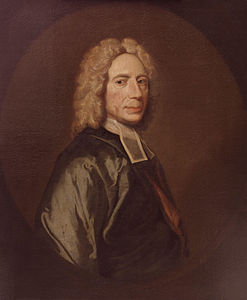Analysis of Psalm 148 Paraphrased
Isaac Watts 1674 (Southampton, Hampshire) – 1748 (Stoke Newington, Middlesex)
Universal praise to God.
Loud hallelujahs to the Lord,
From distant worlds where creatures dwell;
Let heav'n begin the solemn word,
And sound it dreadful down to hell.
The Lord, how absolute he reigns!
Let every angel bend the knee;
Sing of his love in heav'nly strains,
And speak how fierce his terrors be.
High on a throne his glories dwell,
An awful throne of shining bliss;
Fly through the world, O sun! and tell
How dark thy beams compared to his.
Awake, ye tempests, and his fame
In sounds of dreadful praise declare;
And the sweet whisper of his name
Fill every gentler breeze of air.
Let clouds, and winds, and waves agree
To join their praise with blazing fire;
Let the firm earth and rolling sea
In this eternal song conspire.
Ye flowery plains, proclaim his skill;
Valleys, lie low before his eye;
And let his praise from every hill
Rise tuneful to the neighb'ring sky.
Ye stubborn oaks, and stately pines,
Bend your high branches and adore:
Praise him, ye beasts, in diff'rent strains;
The lamb must bleat, the lion roar.
Birds, ye must make his praise your theme;
Nature demands a song from you;
While the dumb fish that cut the stream
Leap up, and mean his praises too.
Mortals, can you refrain your tongue,
When nature all around you sings?
O for a shout from old and young,
From humble swains and lofty kings!
Wide as his vast dominion lies
Make the Creator's name be known;
Loud as his thunder shout his praise,
And sound it lofty as his throne.
Jehovah! 'tis a glorious word:
O may it dwell on every tongue!
But saints, who best have known the Lord,
Are bound to raise the noblest song.
Speak of the wonders of that love
Which Gabriel plays on every chord:
From all below, and all above,
Loud hallelujahs to the Lord!
| Scheme | x Abcb dede bxbx fgfg eheh ijij xkdk lmlm nono xpxp cnax qaqA |
|---|---|
| Poetic Form | |
| Metre | 010111 11101 11011101 11010101 01110111 0111011 110010101 1111011 01111101 11011101 11011101 11011101 11110111 0111011 01110101 00110111 110010111 11010101 111111010 10110101 010101010 110010111 10110111 011111001 1101011 11010101 11110001 11110111 01110101 11111111 10010111 10111101 11011101 10110111 11010111 11011101 11010101 11110101 101111 11110111 01110111 010101001 111111001 11111101 11110101 11010111 1100111001 11010101 11101 |
| Closest metre | Iambic tetrameter |
| Characters | 1,695 |
| Words | 318 |
| Sentences | 19 |
| Stanzas | 13 |
| Stanza Lengths | 1, 4, 4, 4, 4, 4, 4, 4, 4, 4, 4, 4, 4 |
| Lines Amount | 49 |
| Letters per line (avg) | 28 |
| Words per line (avg) | 6 |
| Letters per stanza (avg) | 104 |
| Words per stanza (avg) | 24 |
Font size:
Submitted on May 13, 2011
Modified on March 05, 2023
- 1:36 min read
- 89 Views
Citation
Use the citation below to add this poem analysis to your bibliography:
Style:MLAChicagoAPA
"Psalm 148 Paraphrased" Poetry.com. STANDS4 LLC, 2024. Web. 28 Apr. 2024. <https://www.poetry.com/poem-analysis/19705/psalm-148-paraphrased>.


Discuss this Isaac Watts poem analysis with the community:
Report Comment
We're doing our best to make sure our content is useful, accurate and safe.
If by any chance you spot an inappropriate comment while navigating through our website please use this form to let us know, and we'll take care of it shortly.
Attachment
You need to be logged in to favorite.
Log In